An Israeli ground offensive in Rafah would turn the southern Gaza city into a "graveyard" and heighten the looming risk of famine, leaders of global humanitarian groups warned on Tuesday.
"The consequences of a full scale assault on Rafah are truly unimaginable," Avril Benoit, executive director of Doctors Without Borders (Medecins Sans Frontieres) in the United States, told reporters.
"Carrying out a military offensive there would turn it into a graveyard," Benoit said at a press briefing by MSF, Refugees International, Oxfam, Amnesty International and other groups.
Benoit said Rafah, where 1.4 million Palestinians live in crowded shelters and tent camps, is the "end of the line."
"It's the last hub of healthcare services and humanitarian assistance for the people in Gaza," she said. "Attacking Rafah effectively means cutting off the lifelines of people who have already lost everything except their lives."
Jeremy Konyndyk, president of Refugees International, said Israeli strikes have made it "virtually impossible" for humanitarian groups to safely operate inside Gaza and there was a growing risk of famine.
"People, mostly at this point in the north, are already right on the brink of famine," Konyndyk said.
"The risk here, if there is not a meaningful humanitarian operation allowed to operate in an unfettered way at scale throughout Gaza, is famine," he said.
"And that famine will occur not because of any natural phenomenon but simply because of the manner in which this war is being conducted and the persistent and intentional denials of humanitarian access principally by the Israeli government."
Konyndyk also said it was a "mirage" to believe that the population of Rafah can be safely evacuated, because there is nowhere else safe for them to go.
MSF's Benoit urged the United States and other nations to call for a ceasefire.
"A ceasefire is the only way to prevent more deaths and suffering in Gaza," she said. "Our teams on the ground continue to witness patients unable to access the medical care they need due to repeated and persistent attacks on healthcare facilities and their surroundings.
"One of our doctors in Rafah recently told us that she's writing the names of her children on their arms and legs so that they can be identified easily if killed in a bombing," she said.
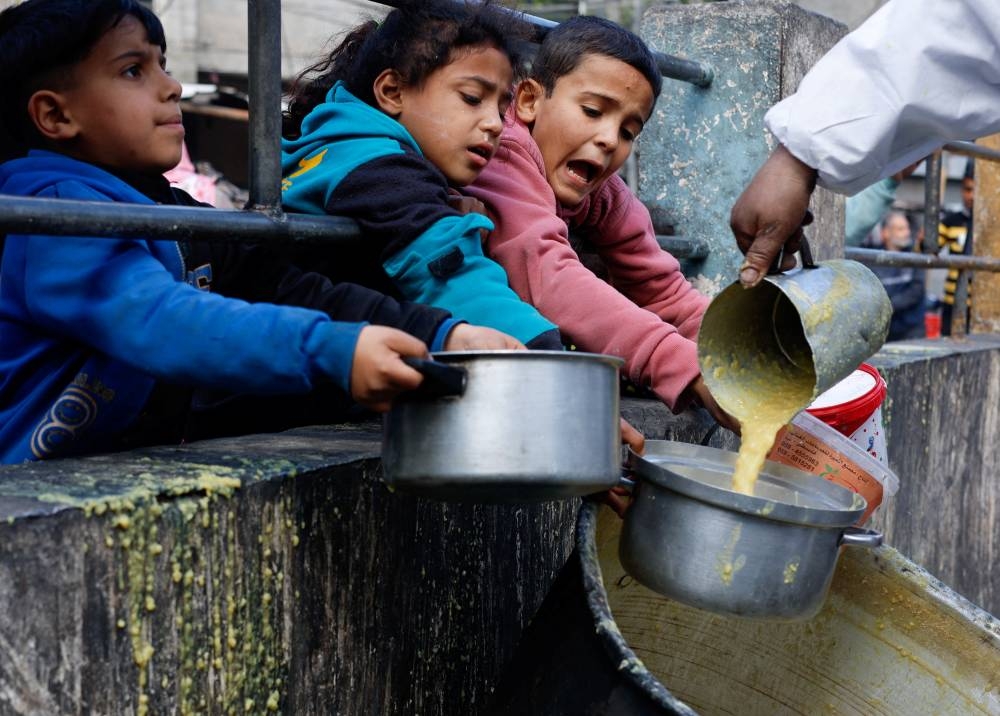
Palestinian children react as they receive food cooked by a charity kitchen amid shortages of food supplies in Rafah, in the southern Gaza Strip, on Tuesday. REUTERS
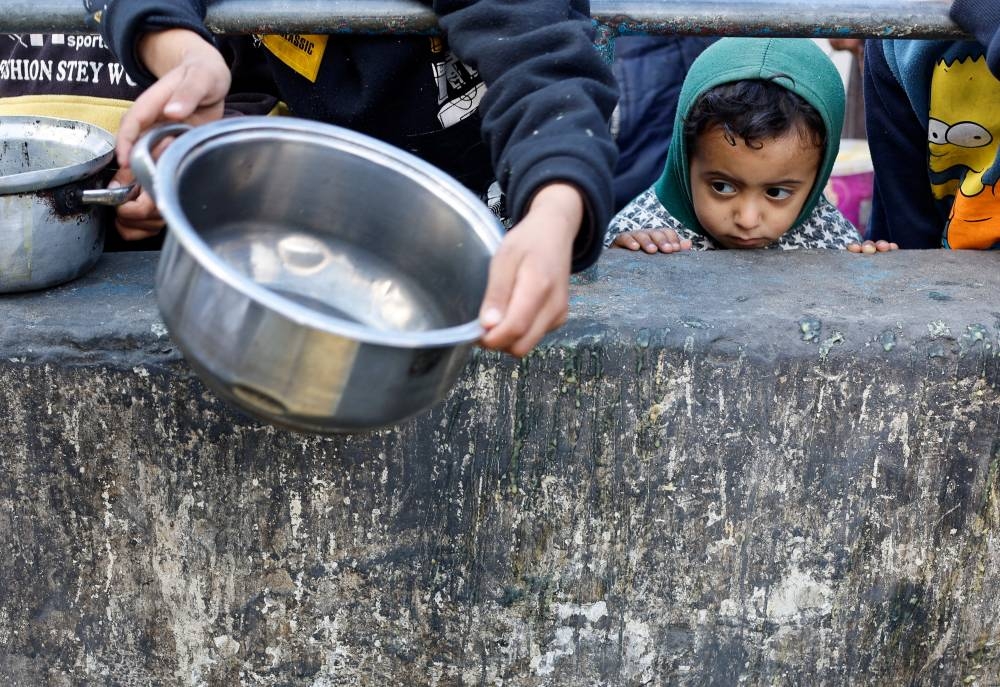
A Palestinian child looks on while waiting to receive food cooked by a charity kitchen amid shortages of food supplies in Rafah, in the southern Gaza Strip, on Tuesday. REUTERS
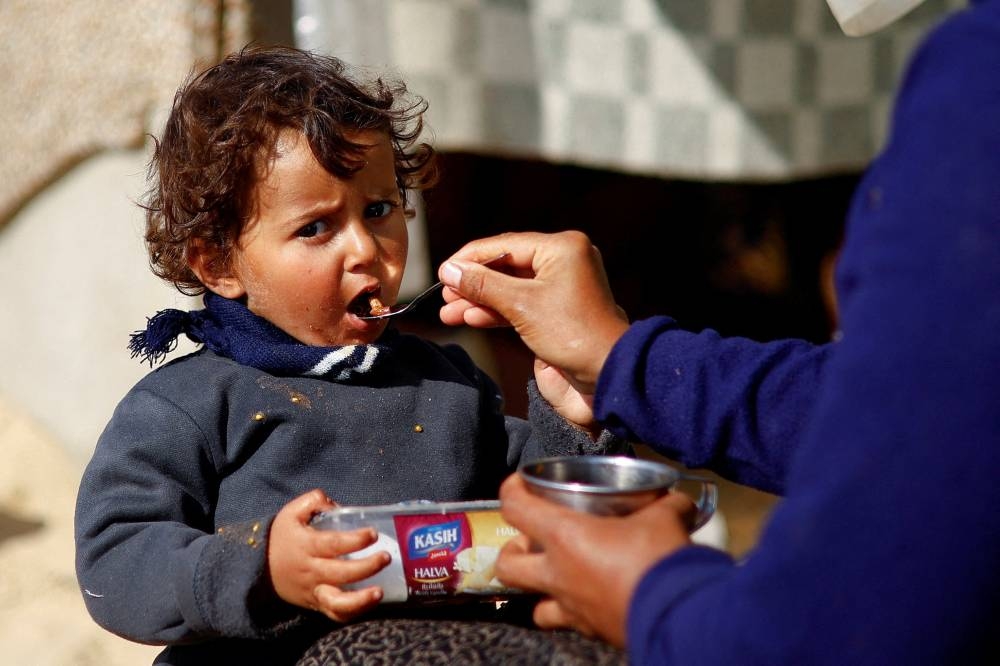
A displaced Palestinian child, who fled due to Israeli strikes, eats in Rafah in the southern Gaza Strip, on Tuesday. REUTERS
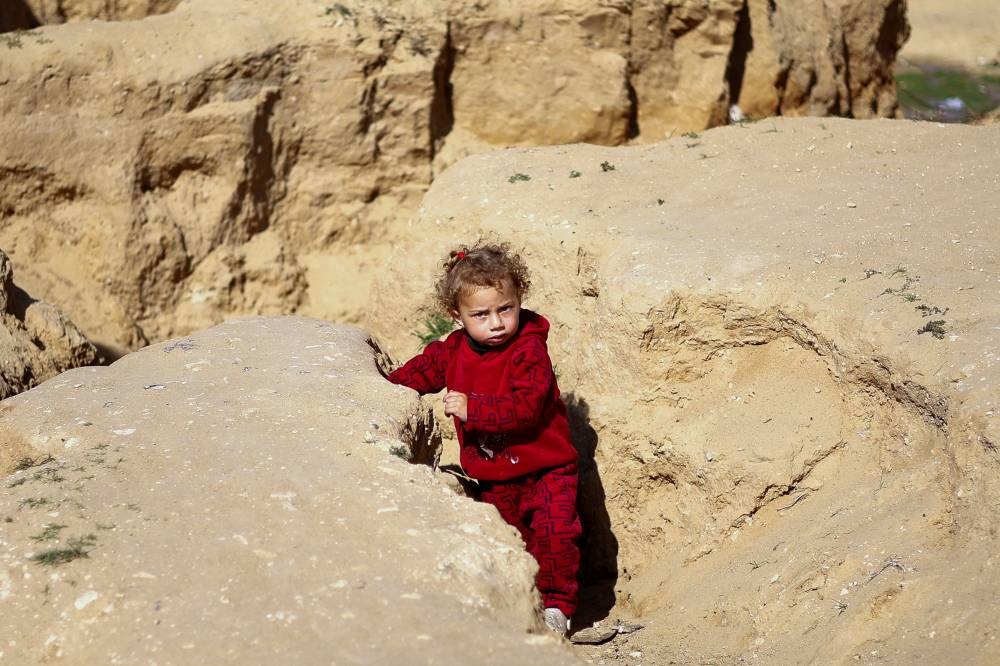
A displaced Palestinian child, who fled due to Israeli strikes, stands between rocks in Rafah in the southern Gaza Strip, on Tuesday. REUTERS
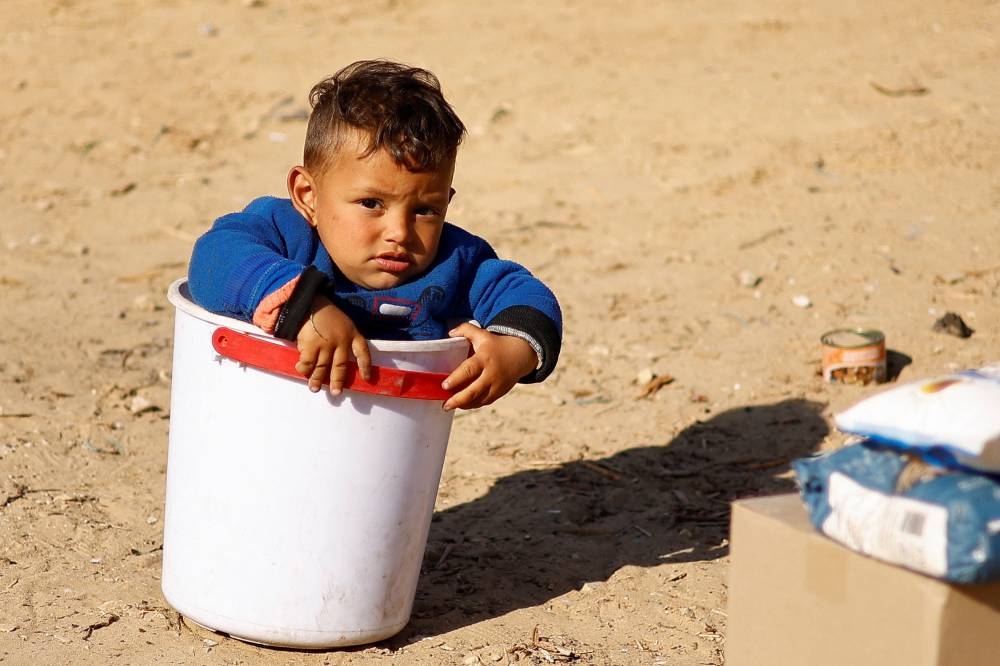
A displaced Palestinian child, who fled due to Israeli strikes, sits in a bucket in Rafah in the southern Gaza Strip, on Tuesday. REUTERS
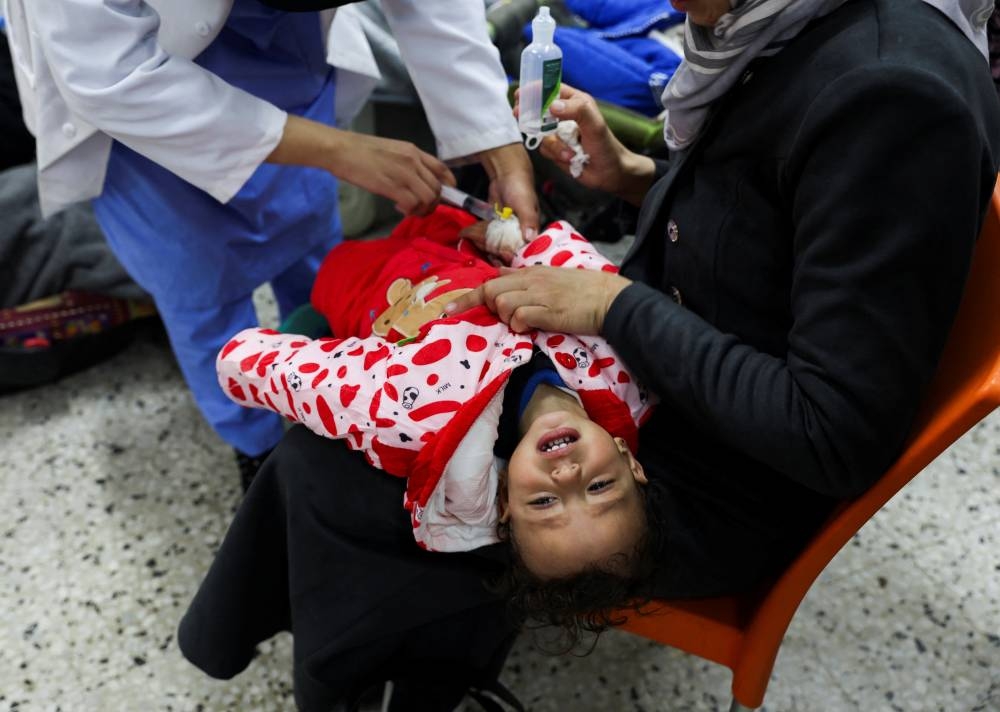
A Palestinian child is treated by a doctor at a health center in Rafah in the southern Gaza Strip, on Tuesday. REUTERS
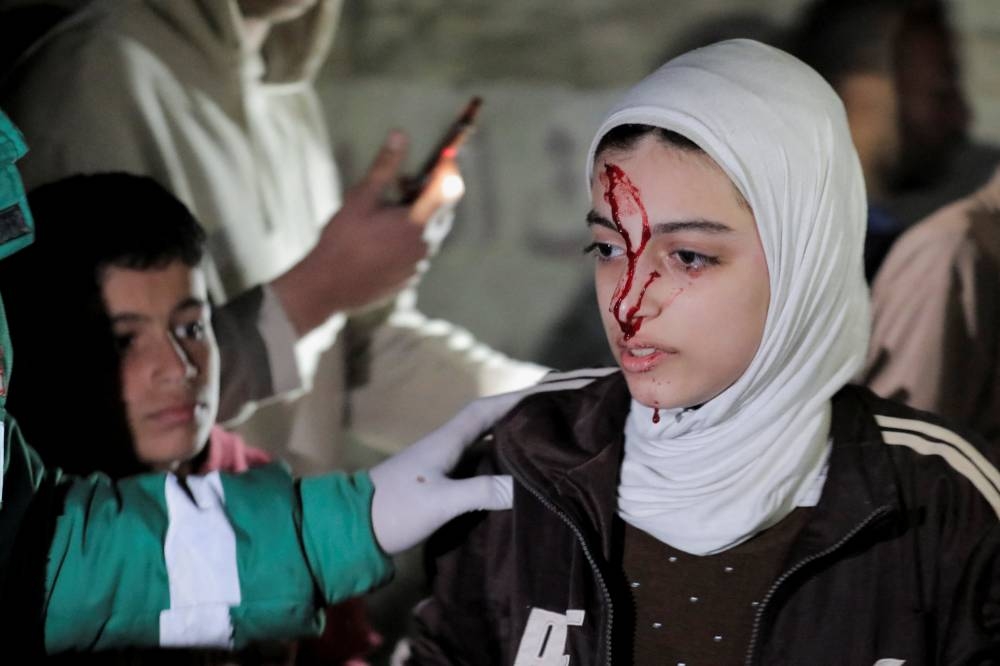
A wounded Palestinian is assisted at the site of an Israeli strike in Deir al-Balah, in the central Gaza Strip Monday. REUTERS
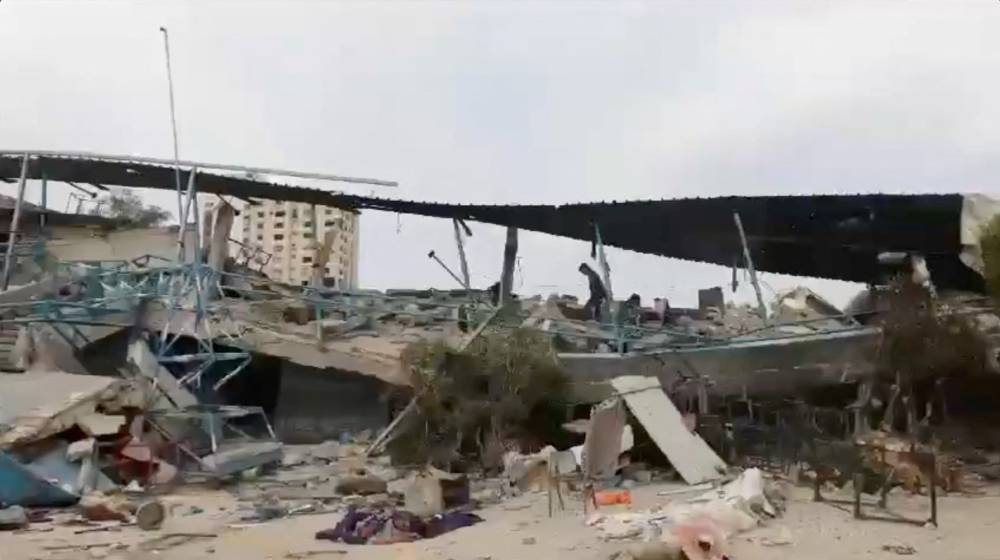
A view shows a damaged UNRWA school in Gaza City, in this screengrab obtained from a social media video released on Monday. UNRWA/Handout via REUTERS
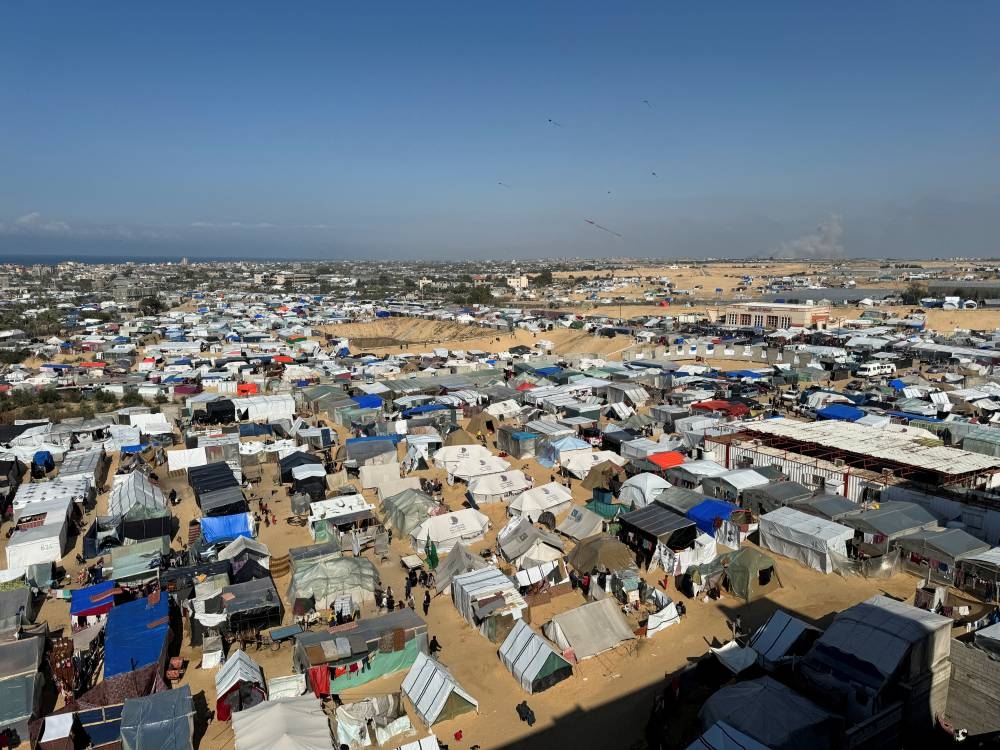
Smoke rises during an Israeli ground operation in Khan Younis in the southern Gaza Strip, on Tuesday. REUTERS
